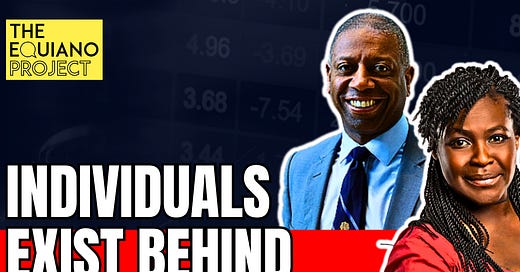What People Get Wrong about Racial Disparities
A Conversation with Two Members of the Commission on Race and Ethnic Disparities
Inaya Folarin Iman interviews two members of the Commission on Race and Ethnic Disparities: Keith Fraser, chair of the Youth Justice Board, and Maggie Aderin-Pocock, a space scientist and science educator.
In 2020, the Commission on Race and Ethnic Disparities was tasked with conducting a comprehensive examination of the persistent racial inequalities that exist across different domains in the United Kingdom.
Through rigorous data analysis and extensive consultations with diverse groups and organisations, the commission uncovered nuanced patterns of disparities among ethnic minority communities. Their report was released in March 2021.
The commission emphasised the need to shift away from a deficit mindset solely focused on disadvantage. Instead, they advocated for replicating the factors, circumstances, and sociocultural elements that enable the success of thriving ethnic minority groups. Rather than treating racial minorities as a monolithic 'BAME' group, the findings revealed that some ethnic minority groups fared better than others in areas like health outcomes and educational attainment.
Full report HERE.
You can also read The Equiano Project’s review of the report HERE.
Interview below:
🚨Upcoming Events from The Equiano Project🚨
End of Race Politics with Coleman Hughes & Inaya Folarin Iman
Tickets available Here. (Free Tickets for our paid subscribers. Email ada@theequianoproject.com to receive your code.)






I don't doubt that the contributors to the Commission on Race and Ethnic Disparities were good and reasonable people, however...
The contributors here said that they spoke to many people, but they didn't speak to me or anyone I know. We have a political system (democracy) where individuals can put themselves forward for election, there may be other ways also to win support and build organisations. The most effective way to claim leadership is through the vote, alternatively there are membership organisations or even celebrity charisma.
Black people are constantly provided with advocates and representatives, more often than not self-appointed, but sometimes state appointed, such as the Commission on Race and Ethnic Disparities. So what is the answer? The state often uses patronage and rewards to bring in potential disrupters - honours, places on committees and quangos and so on.
Maybe my problem is a personal one, I have not been invited. Nonetheless the question remains, why should I accept the authority of those black spokespersons who claim or are appointed to speak on my behalf?
The client of the Commission on Race and Ethnic Disparities, was not 'black people', the client was the state, often we confuse these things.
So what's the answer? We need to speak for ourselves, and we need spaces and places to do that. It might seem paradoxical to create a space for black people who don't want to be defined as black people to speak for themselves, or maybe that's what true anti-racism looks like.